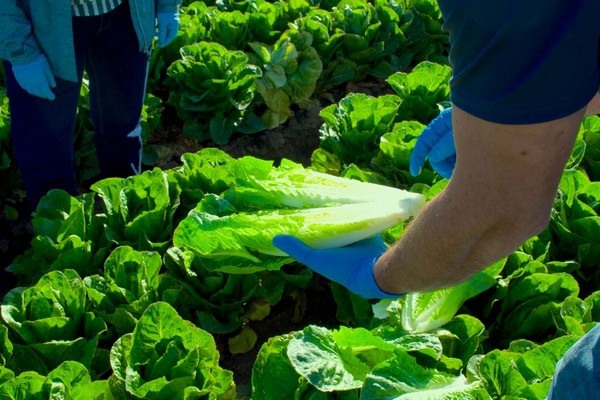Growers and shippers know more than their fair share about difficult weather events. So, it's not a stretch to say that potential tariffs being set this week are like a hurricane. "We're prepared and you see it coming–it's coming in four days, then three days and you're boarding up your windows and doing everything you can to be prepared," says Nick Bernal of Seasons Farm Fresh in Miami, Florida–a state that is very familiar in dealing with hurricanes. "However, until it hits, we don't know what the actual reverberations in the marketplace will be."
In its preparation, the company, which is in the middle of shipping mangoes from Mexico, has talked with customers about what the incoming tariff–potentially 25 percent on items coming from Mexico and Canada into the U.S.--means. "We're going to have to increase prices, and it's going to come out of everybody's pocket–the grower, the importer, the retailers and wholesalers," he says, adding that he feels fortunate in a sense that mangoes aren't a high-value item. "It would be 25 percent on a $3-$4 item. That's an extra $1 split along the chain. More high-value items like grapes or berries in the $10-$30 range is where it's going to have more of an impact."
Ultimately, the concern is also about the impact on demand for produce items if prices go up–especially on a commodity like mangoes. "It's a growing commodity but if the prices get too out of line, consumers will just buy less and switch to something else, whether it's domestic or another more necessary fruit product," says Bernal, who adds that late last week and early this week some shippers who can have been bringing into the U.S. as much product as possible in anticipation of this week's tariffs.
 © White HousePhoto: The White House
© White HousePhoto: The White House
Double planning in order
In Vero Beach, Florida, G.T. Parris of Seald Sweet notes that last month's brief implementation of tariffs set the industry in a panic about what would really happen. It also allowed the company to make two sets of plans. "One, what prices would look like if the tariff was enacted. Would growers be willing to sacrifice some on their end, and what would we have to sacrifice on our end? The last thing we want is the consumer to see or feel more hikes in pricing at retail. Most consumers have felt it in the last several quarters, and stoking the fear of rising prices only hurts sales and growth," Parris says.
It also forced shippers such as Seald Sweet to turn to other suppliers outside the tariff zones to possibly fill in and make up for supply gaps. "We source from all over the globe, and our partners all stepped up to help if needed. We have already begun pulling from these areas in the belief that tariffs are going to be put in place," Parris says.
Some shippers, such as Alex Zenebisis of EagleXport in Saint Remi, Quebec, say the threat of tariffs is already impacting some Canadian shippers. "All of this uncertainty has killed business," he says. "It's like the second winter of COVID-19, where everybody was hibernating and isolated. People are buying the minimum to get by because they aren't sure what's coming next," he says.
The reality of tariffs
Ultimately, shippers such as Bernal are concerned about the overall impact of tariffs. "I get what this administration is looking to do. It would be nice to do more domestic growing, but the reality is, we already outsource most of our agriculture because the cost of land, inputs, labor, and more have gotten too high for us to be competitive. It's going to impact American business more than the administration intends," he says.
 © IFPAPhoto: IFPA
© IFPAPhoto: IFPA
However, last month's brief tariff implementation also offered a chance to learn. "I think a lot of people found out whether they were dealing with the right customs broker or whether they need to make a change," says Tony Martinez of Primo Trading. "You were able to see if your U.S. custom broker was capable of keeping up with everything that's changing and how they would help you navigate the various options. It's not just a cookie cutter way of importing–there's so much fine print. There are five different methods of importing produce that most of the industry doesn't know."
Another lesson learned over the past two months is the impact on foreign exchange. "This has destabilized produce markets. Anything that looked like it was stable or active, it slowed consumption because of uncertainty. Once consumption is thrown off, the markets follow," says Martinez.
Acting as an industry
He said the tariffs were also a reminder of the importance of belonging to industry organizations advocating on behalf of the industry on the issue. Last Thursday, for example, the IFPA sent a letter to Commerce Secretary Howard Lutnick, Agriculture Secretary Brooke Rollins, and U.S. Trade Representative Jamison Greer, warning them of the impact of tariffs on the price of fresh produce. "The proposed U.S. tariffs and the resulting retaliatory actions of other nations threaten American consumers' ability to afford fresh produce and florals, as well as the stability and prosperity of the growers and businesses that supply them...Higher prices mean consumers buy fewer of the fresh foods that hold the greatest potential to make Americans healthier. IFPA members respectfully urge the Trump administration to provide exemptions from new and future tariffs for fresh produce and florals," wrote IFPA CEO Cathy Burns.
Parris agrees. "We are hoping that the government will change their mind on produce and reconsider the decision," he says. "This will have a major impact on our industry if enacted, no way around it."
For more information:
Nick Bernal
Seasons Farm Fresh, Inc.
https://seasonsfarmfresh.com/
G.T. Parris
Seald Sweet
www.sealdsweet.com
Alex Zenebisis
Eagle Export, Inc./Alcaro Farms
www.eaglexport.ca
Tony Martinez
Primo Trading Services LLC
https://www.primotradingservices.com/
